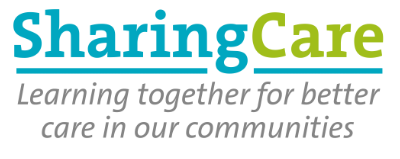Considering the wider impact of our work has been important from the very start. We have an ambition to deliver great quality care for people who need it locally and we understand that what we do in the Colne Valley does not happen in isolation. Climate emergency is the reality in which we are setting up our enterprise.
As an emerging co-operative, we have a unique opportunity to consider our ways of working - from procurement of protective equipment to support of active transport for our staff and volunteers. We have a chance to explore and model a more environmentally aware social care service delivery.
We have seen changes happen in other industries. In food supply chains, Fair Trade is a recognised logo and many of us value the positive impact it has brought to workers and families around the world: fairer wages, prohibition of child labour, support for co-operative work. Similarly, initiatives challenging animal testing have shown that it is possible to have cleaning and personal care products without animal cruelty.
The work in the care sector requires consideration of the complex needs of running a business which provides personal care. There is a myriad of elements to bear in mind: safety and wellbeing of everyone who receives and gives care, quality of the products and materials used both in a care setting and in supporting roles, such as administration.
Our business plan summarises the aims and objectives broadly and lays out that we will:
- Reduce carbon emissions by enabling and actively encouraging care workers not to use their cars between calls.
- Wherever possible use sustainable and ethically sourced materials and equipment.
- Wherever possible procure sustainable and ethically sourced services to support the administrative infrastructure which will eventually be shared with replicated services.
To practically embed these principles, we are getting inspiration from initiatives led by the Social Care Institute for Excellence and we have agreed to consult, be guided by and possibly positively influence recognised quality standards in health & care sector. The NHS Supplier Code of Conduct is one of the key frameworks – setting the minimum standards in connection to human rights, environmental impact, financial ethics (e.g. bribery), discrimination, forced labour and other elements of procurement, supply and cooperation. More widely, there are also other practical steps we can take to have local & global impact and contribute to local wealth building – e.g. co-operate with other co-ops, use local and small businesses when catering for events, hiring venues, printing leaflets.
It is a very exciting start for us – a journey of learning and exploring new ways of working. But it is exactly that: a start. We recognise that our ambition to support environmental and ethical awareness in the care sector might not be a straightforward journey. Like any work for change, it will require an ongoing commitment, passion and creativity. We not only believe it is possible, we are already working on it.
